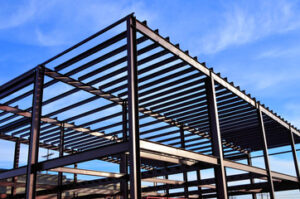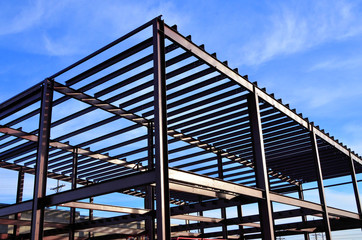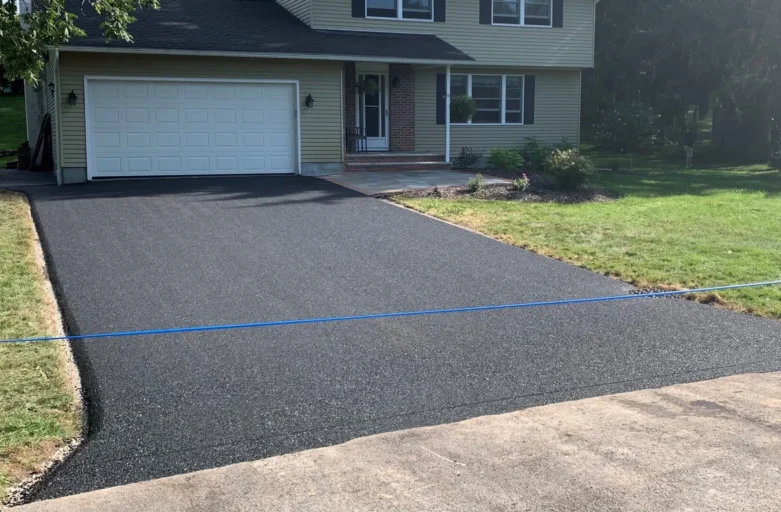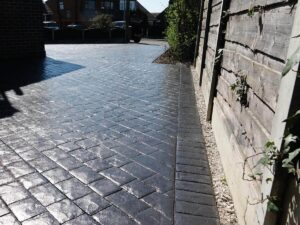Commercial steel buildings are becoming the preferred building solution for businesses across many industries. They are sturdy reliable and can be used to expand an existing business or provide space for a new one.
They are also great for warehouses, offering wide open spaces and a column-free interior. Other uses include agricultural buildings, distribution centers, auto service garages, towing companies, and storage or shipping companies. To learn more, visit https://www.oksteelbuildings.com/.
Compared to other construction materials, steel buildings can save on material costs. Steel framing sections are often pre-engineered and it is common for many components of a steel building, such as roofing trusses, to come pre-assembled. This helps reduce labor costs and allows the manufacturer to pass these savings onto you. This is a great way to keep your commercial building affordable while still getting the quality you need for your business or organization.
Another cost-saving factor for steel buildings is their efficiency during the construction process. Because they are lighter than other materials, it can be easier to move the parts and assemble them. This can also help cut down on transportation costs, as fewer fuel resources are required to transport the components. In addition, many of the steel components used in commercial steel buildings are manufactured from standardized elements, which can further cut down on production costs.
Other important factors to consider when budgeting for a commercial steel building include site preparation, foundations, and utilities. A professional engineer should be consulted to determine the best foundation type for your building, which can impact your total cost. The cost of preparing the site may also vary depending on the size and complexity of your building. It is also important to account for the price of electricity and any other utilities that will be required in your building.
Once you have accounted for all the upfront expenses, it’s time to look at the long-term cost of your commercial steel building. You should take into account insurance costs, ongoing maintenance, and any potential repairs that will be needed. This will ensure that you get the most bang for your buck when investing in a commercial steel building.
Another cost to consider is the cost of obtaining all the necessary permits for your new steel building. These can vary from one jurisdiction to the next, so be sure to research the specific requirements in your area. Also, be sure to budget for any fees associated with obtaining a building permit, such as inspections, licensing, and registration costs.
Durable
As demand for commercial construction has increased, the standards that builders must meet have become loftier than ever. Buildings must be more versatile, sustainable, and provide a better value per-square-foot than before. And, if they want to stand out in the crowd, they must also be aesthetically pleasing and have elite durability. In a quest to meet these expectations, many builders are turning to steel as their preferred building material. Here’s how it can transform the functionality of a building and revolutionize the look and feel of a space.
In addition to the obvious advantages of steel’s elite durability and flexibility, it’s also energy-efficient. This is due to the fact that metal buildings reflect the sun’s heat waves and can quickly return to their desired interior temperature after absorbing solar energy. This is in stark contrast to traditional high-mass buildings, which tend to absorb and then slowly release the sun’s energy throughout the day.
Steel buildings are also resistant to various natural disasters, such as floods, tornados, high winds and heavy snowfall. This is in addition to being fire, mold and pest-resistant. This makes them an excellent choice for commercial applications, as they can easily withstand the harshest of conditions.
Because they are built using pre-engineered steel, these buildings are able to be erected in a fraction of the time that it takes to build structures from other materials. This means that business owners can open their doors for customers much sooner. This can be an excellent advantage for small businesses, as it allows them to maximize their revenue potential.
These buildings can be constructed to meet the specific needs of any industry. This is because they can be made to include different types of accessories, such as loading docks, shipping and receiving doors, skylights and ventilation. This versatility makes them ideal for retail spaces, office buildings and even agribusinesses.
The versatility and durability of Steel Buildings have made them a popular choice for businesses across the United States. In fact, they are becoming increasingly popular as a replacement for conventional buildings in the industrial sector, such as warehouses and factories. In addition, the speed of construction and aesthetic appeal of Steel Buildings make them an attractive option for commercial spaces, such as retail stores and restaurants.
Versatile
Steel buildings are highly versatile and are perfect for businesses of all kinds. From automotive services like car dealerships, auto service and repair garages, to towing companies, storage facilities, and even manufacturing shops, metal structures are durable enough to protect your equipment while offering an open layout that makes it easy to create offices or examine patients. They are also great for service industries like electrical, cabinet-making, locksmithing, landscaping, HVAC, and appliance servicing as well as industrial uses like pump shelters, water filtration centers, and paint booths.
With the ability to customize your building’s dimensions, layout, and interior aesthetics to your specific business needs, these structures can be remodeled as your company grows. This flexibility is one of the main reasons that many small businesses and even home owners choose to utilize steel structures.
As Americans demand more and more storage space, a growing number of them are turning to self-storage facilities. Fortunately, these structures are easy to customize and offer ample storage space for items in both the short- and long-term. Steel is a common construction material for these types of buildings because it can be easily customized and offers durability against the elements.
Large-scale warehouses require massive space that can be difficult to construct with traditional buildings. However, pre-engineered metal buildings are ideal for constructing these large facilities because they can be assembled in less time and provide a wide open floor plan. These structures are also designed to reduce the cost of labor and materials when compared to other construction methods.
These versatile structures are also popular for professional and personal workshops. The open layouts of these structures allow for more room and are more efficient than traditional wood-framed buildings. Additionally, steel buildings are more affordable and come with a wide variety of customization options. These factors make these structures a popular choice for home garages, garden sheds, and automotive service centers.
Whether you’re looking for a place to store your equipment or an office space, there’s a metal building that can suit your needs. These sturdy and versatile buildings are quick to assemble, offer ample storage space, and can be remodeled as your business grows. Plus, they’re environmentally friendly and are a great option for boosting your property value.
Easy to Assemble
Unlike a traditional building, which takes several months to erect, a pre-engineered steel building can be set up quickly and easily. Because of this, they are a popular choice for businesses that need to open fast and get their business running.
These structures can be constructed with a variety of accessories, including roll-up doors, windows, commercial-grade entry doors, vents, and insulation. They are also made from durable materials that can withstand severe weather conditions, such as high winds, snow, and lightning. They are also less susceptible to rusting or damage from debris. The building’s panels can be coated in a wide range of colors and finishes. This means that the building can blend in with the surrounding landscape or stand out as a work of art.
In addition to being quick and easy to assemble, steel buildings are cost-efficient to build. They are designed with precision at the manufacturer, reducing construction time and material waste. In addition, they are built on a lighter base than traditional buildings, which means that foundation costs are lower as well. Additionally, if you need to expand your business in the future, a steel building can be modified to accommodate your needs. This can be done by adding or removing interior walls, shifting frame openings, and even adding stories.
Steel buildings are a great choice for many types of businesses, including retail stores, warehouses, and storage units. They can be used to store inventory, equipment, and machinery and can withstand harsh weather conditions. In addition, steel buildings can be fitted with a variety of accessories, such as ventilation, skylights, and insulation. This makes them a good choice for businesses that need to meet strict environmental standards.
Since they have a clear-span framing, steel buildings don’t require interior columns for support, making them much more flexible than other types of structures. This allows the interior to be designed however you need it, which is especially helpful for businesses that need to accommodate large vehicles such as buses or trucks.
Because of their durability and versatility, steel buildings are ideal for use as aircraft hangars and boat or RV storage facilities. They are able to withstand harsh weather conditions, and their structural integrity is unsurpassed by other types of buildings. In addition, they are affordable to maintain and can be modified to fit your specific needs.



